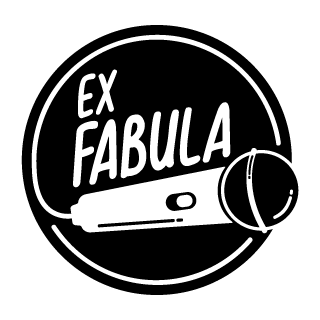I just spent 30 minutes trying to figure out where I first heard of the “first pancake” metaphor. Was it a podcast? A parenting book? A MS Excel online forum? Who knows. What I do know: pancakes are a great metaphor to reference when collaborating.
What do I mean? Well, last Saturday, I made pancakes in an attempt to upgrade Olivia’s frozen waffle habit. Almond and oat flour would be higher in fiber and protein, I reasoned. Also, I hate throwing away food, so making them gluten free means I can enjoy the bites that her royal highness leaves behind.
The batch made 12 pancakes – or in other words, 11 good pancakes, and one ‘first pancake’. You know, the one that is not quite browned, or dense, or uneven, or all of the above. I always eat that one. Sometimes it prompts me to add more liquid or mix out some lumps.
Think of these pancakes as activities in a collaboration. In Ex Fabula’s case, those could include a series of workshops to start, then StoryCircles, some one-on-one coaching, and then a Slam. Even though we spend a ton of time planning and customizing – weighing all those flours on a scale, seasoning the pan – the first workshop will have some flaws, the second will run much smoother, and we really hit our stride at the third session, when the participants have built up some trust and confidence.
Actually, the way some workshop participants act is quite similar to how my partner John eats pancakes. Last Saturday, when I yelled upstairs to see if he wanted a pancake, he replied, “Maybe just one.” I rolled my eyes because I could sense he was making what I call “the two-year-old face” – the “I haven’t tried it but I’m sure I won’t like it” face that our own daughter has recently perfected, right on schedule. Some first timers at workshops are equally on guard; they fear boredom, public speaking, and failure, and they don’t trust us well enough to believe the marketing materials. So, when we show up, our goal is to prove them wrong.
Fortunately in John’s case, once he had a pancake, he wanted more. I’m sure he loved the face I made in reply – the smug “I knew you would like it” pressing together of lips with raised eyebrows – before returning to crank out the rest of the batch. Good thing that there were multiple pancakes available for him! With some workshops, people are just starting to get it when the session ends, and they go from “I don’t know if I can commit two whole hours to this workshop” to “I’m somewhat satisfied with this session because I loved it but we definitely needed more time.”
Carry it further, and there’s a multiplying effect. If we do a workshop with an org, that’s the first pancake in a batch – and although we have a trusted recipe, we’re making it in someone else’s kitchen. If we do a small series of events, the heat is well regulated and the batter has rested. If we collaborate again on a new series of events, we’re referencing our notes from last time, and we’ve seasoned the pans – or in other words, started building a culture of storytelling at your organization.
I know, no organization has the funds to do everything they want. In a world of fast fashion, it may seem odd that a single custom storytelling workshop costs the same as several hundred t-shirts from Forever21. We’re not just transmitting information though; we’re helping folks unlearn bad habits and build new ones. That takes time.
So what’s the takeaway? while a single workshop can be a valuable experience for a group, it cannot create a culture of storytelling; that requires time and practice. Once we’re past the initial learning curve, we start to reap the real benefits.
Let that be a cautionary tale for new partners (keep your expectations realistic!); an invitation to past collaborators (holler when you want to build on our previous work); a request to funders (instead of supporting projects, how about giving Multi-Year General Operating Dollars—MYGOD!); and a reminder to myself – to never underestimate the importance of relationship and trust building in a project. And with that, anyone up for brunch?






Leave A Comment